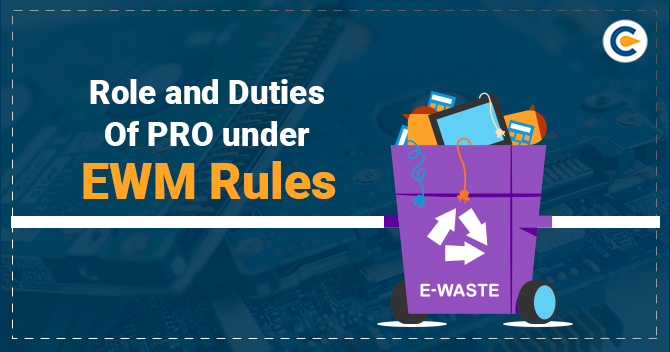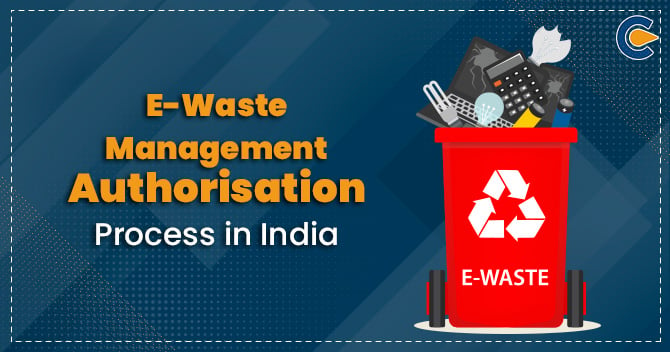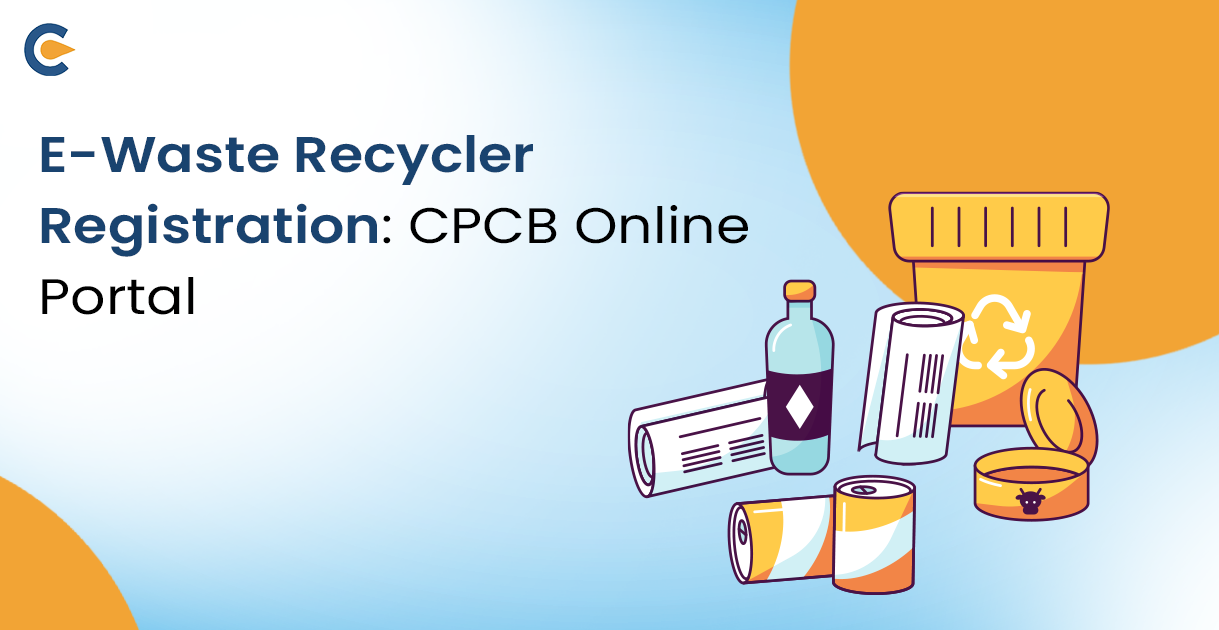E-waste management is a significant challenge for governments of many developing countries, including India. This is becoming a monster issue and is increasing day by day. To protect the environment and set up a collection mechanism for the targeted material and create awareness for recycling e-waste, Producer responsibility came into action. This article discusses what Producer responsibility Organization is and an overview of how it works?
What is PRO?
A Producer responsibility Organization is an association that undertakes the responsibilities of an obligated party as mentioned in government regulations regarding the collection and recycling of products. It is the responsibility of the PRO to collect and recycle batteries on behalf of the obligated producers and inform the regulator on their behalf.
Also, It, is identified as a competent organization authorized/financed collectively or severally by producers who can take initiative for the collection and channeling of e-waste produced from the ‘end-of-life’ of their products to ensure that such e-waste is directed or managed without harming the environment.
Role and Responsibilities of PRO
Producer responsibility Organization assist producers in one or more of the following tasks–
- Accomplishing collection goals,
- Advancing collection processes such as collection door to door
- Implementation of Buy Back
- An agreement under the guidelines issued by the Central Pollution Control Board.
- Administering arrangements collection centres/points may require setting up collection Godowns or working via warehouses.
- Ensure verifiability of the collected and pipped e-waste & recycle refined plastic waste & end of life waste.
- Ensuring environmentally sustainable recycling and dismantling.
- Organizing awareness program among consumers/producers for collecting and channeling waste Helping producers to file quarterly / annual returns in compliance as per regulations.
- Furnishing the business plan of an extended producer as necessarily required.
PRO in E-waste management
Producer Responsibility Organization plays a vital role in implementing EPR and working with a range of stakeholders[1], including governments, and creating systems to bring transparency and accountability.
The PROs are required to initiate a responsible and efficient e-waste management system. Below mentioned are the few roles of the PROs-
- Associating with a group of producers regulated under the EPR framework fulfils their regulatory requirements. This collaboration may involve developing the rules of cooperation, including recognizing and setting up fair and transparent collection/recycling charges for various waste categories.
1. Structuring a holistic system for waste management that goes beyond simple compliance by collaborating with stakeholders from the entire value chain, from the government authorities to municipalities, international multilateral organizations, academic institutions, NGOs, and civil societies. Specifically, the PROs must work towards associating with many informal waste pickers and aggregators and building their capacity to formalize them.
2. Setting standards to improve each stage of the value chain.
3. Expanding systems for transparency, visibility, and accountability in the entire value chain, i.e., collection to recycling. This will ensure creating systems for documentation and compliance management that are reasonable with the government mandate.
Major steps for future Role of PROs
PROs are playing a vital role in the development of effective e-waste management. Critical operations that require attention are as follows:
The MoEFCC has already taken a favorable initial step with the introduction of targets to fulfill the EPR of producers. To build up these rules, the following steps must be taken:
1. Initiating measures such that Producer responsibility Organizations and recyclers exist separately and focus on their core competencies. To boost recyclers to focus on improving recycling processes and technologies. PROs must set up collection networks and create transparent and accountable systems.
2. Instruct bulk consumers, including government institutions, to provide e-waste only to PROs so that collection procedures set up on behalf of producers are strengthened.
3. Preparing a price direction guide for bulk consumers to sell their e-waste depending on the generated recycling returns.
4. Bring out the average weight of products, components, accessories, input, and output devices.
5. Include all Waste Electrical and Electronic Equipment in e-waste categories and bring in toxicity-based measures to identify product categories to be covered.
6. Providing information regularity on documents like Extended producer Responsibility plans and its updates between CPCB and SPCBs at all times.
7. Arranging a support mechanism where anyone can register the issues and projects for the development of the system. These issues and programs should be reviewed and answered to by a committee consisting of government, technological experts, producers, professionals, and recyclers in limited time duration.
Challenges faced by Producer Responsibility Organization
Regardless of the new e-waste rules and the emergence of multiple PROs in India, the e-waste sector still continues to be a black box lacking transparency, answerability, and legitimacy. The presence of PRO is to bring in some formal systems of working and a dialogue on accountability. Here are few challenges that are faced by Producer Responsibility Organizations-
- No Long-Term Commitment
- Consumer Incentives and Awareness
- Malpractices within the E-Waste Sector
- Not building a good waste infrastructure
- Collection points are unclear
Conclusions
The success of PROs is based on the success of Extended Producer responsibility application and the maturity of the e-waste sector. Producers are required to have a lifelong vision and play an enabling role in developing collection channels and recycling infrastructure. For an actual change, this sector needs a frame of reference and a step-up approach for continual enhancement.
Read our Article:E-Waste Dismantler Authorisation: How to get it?











